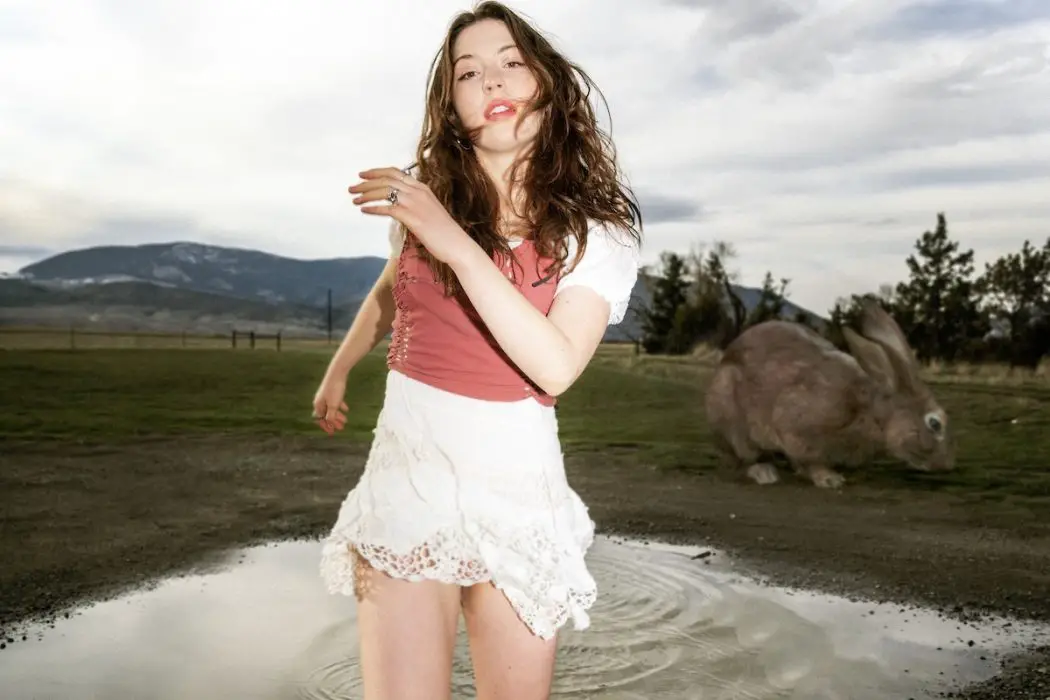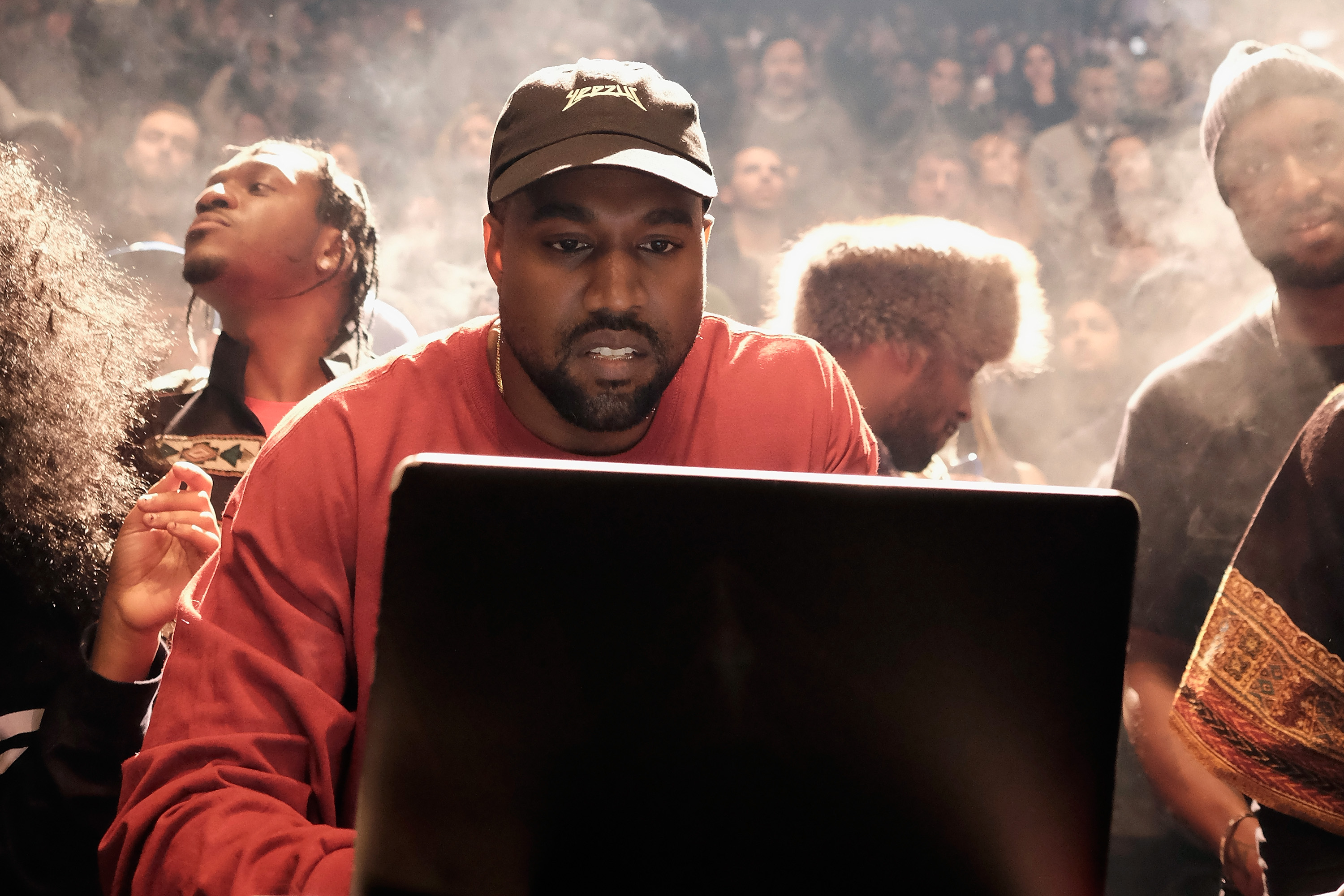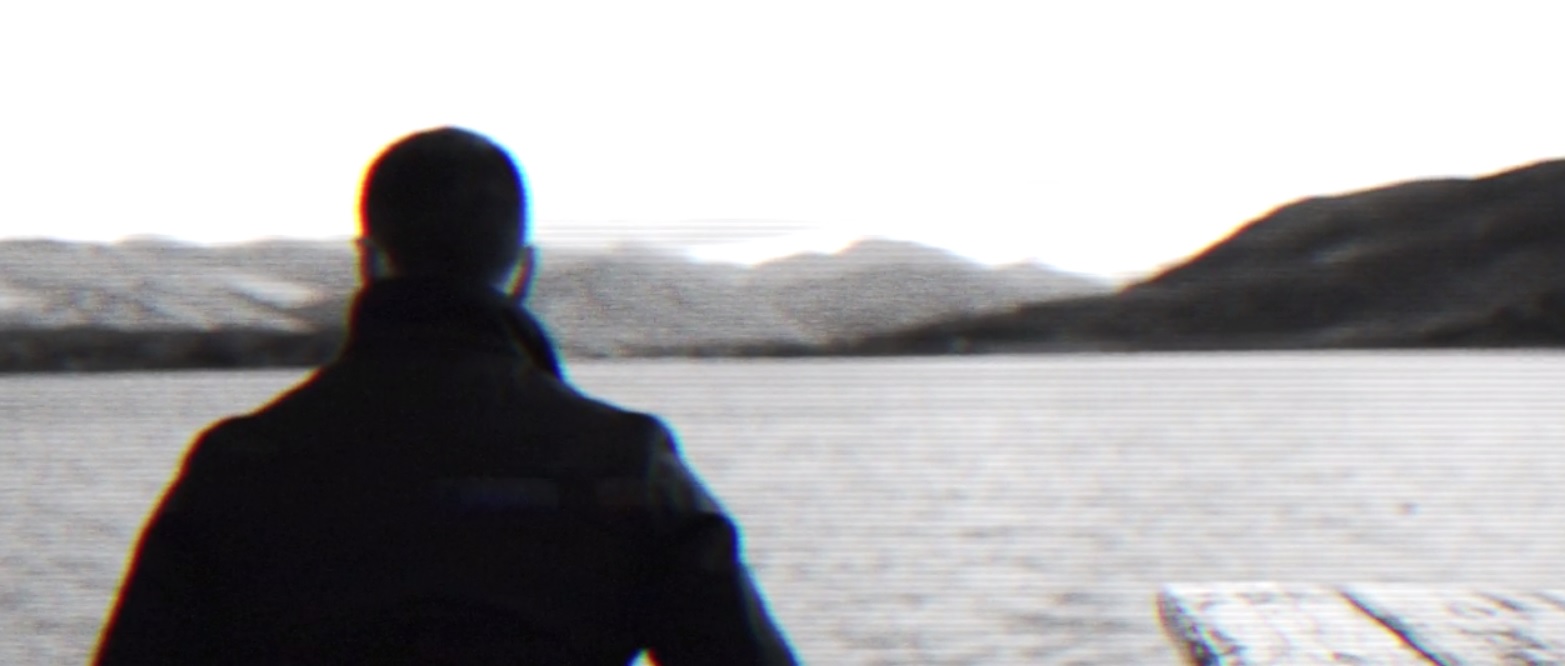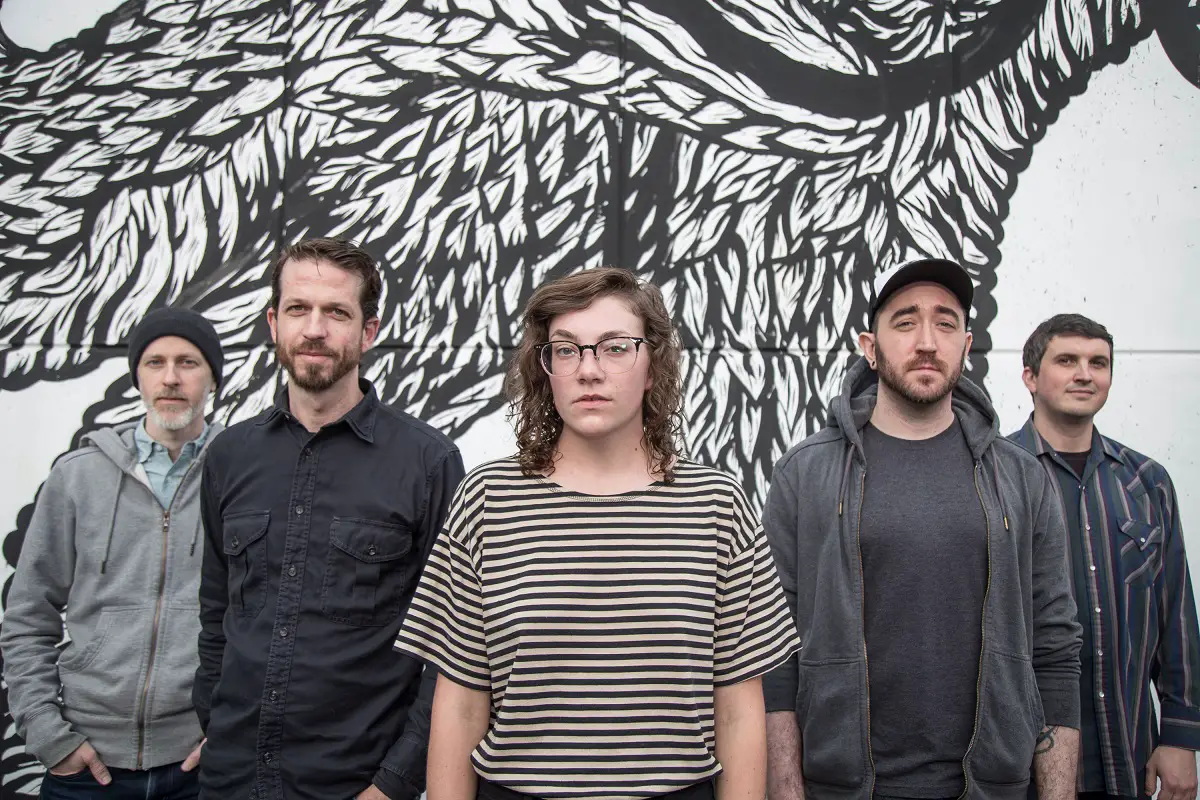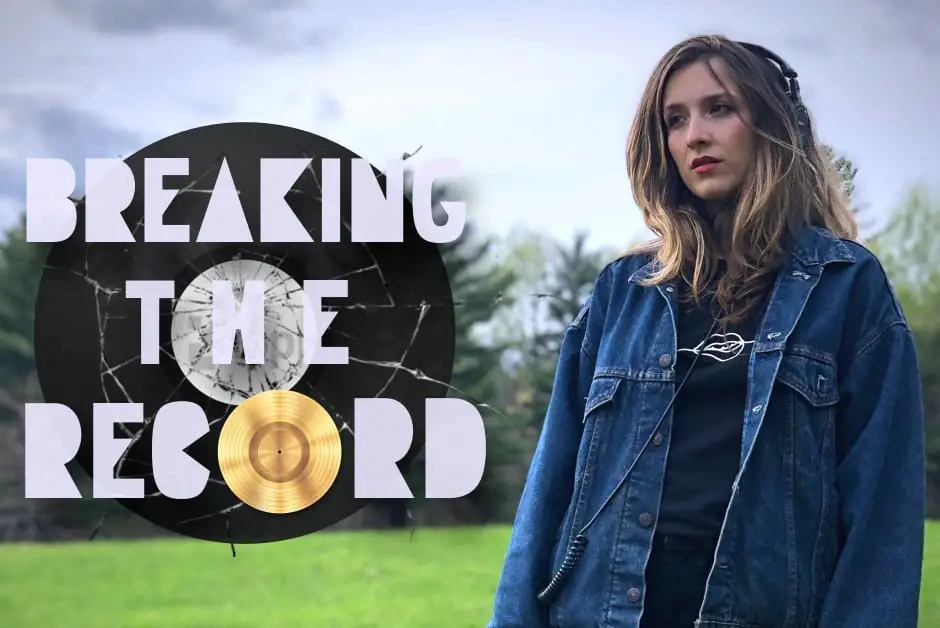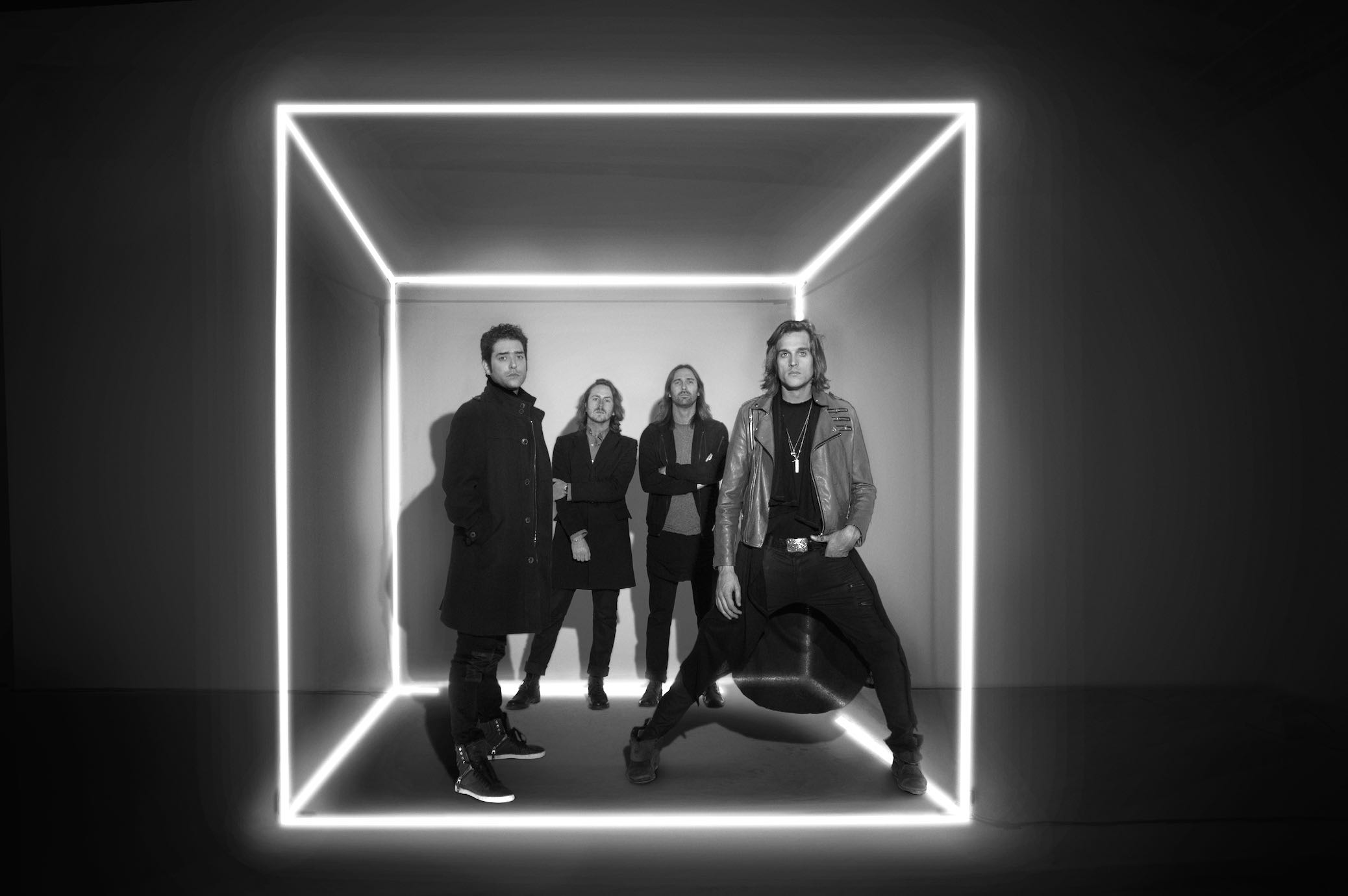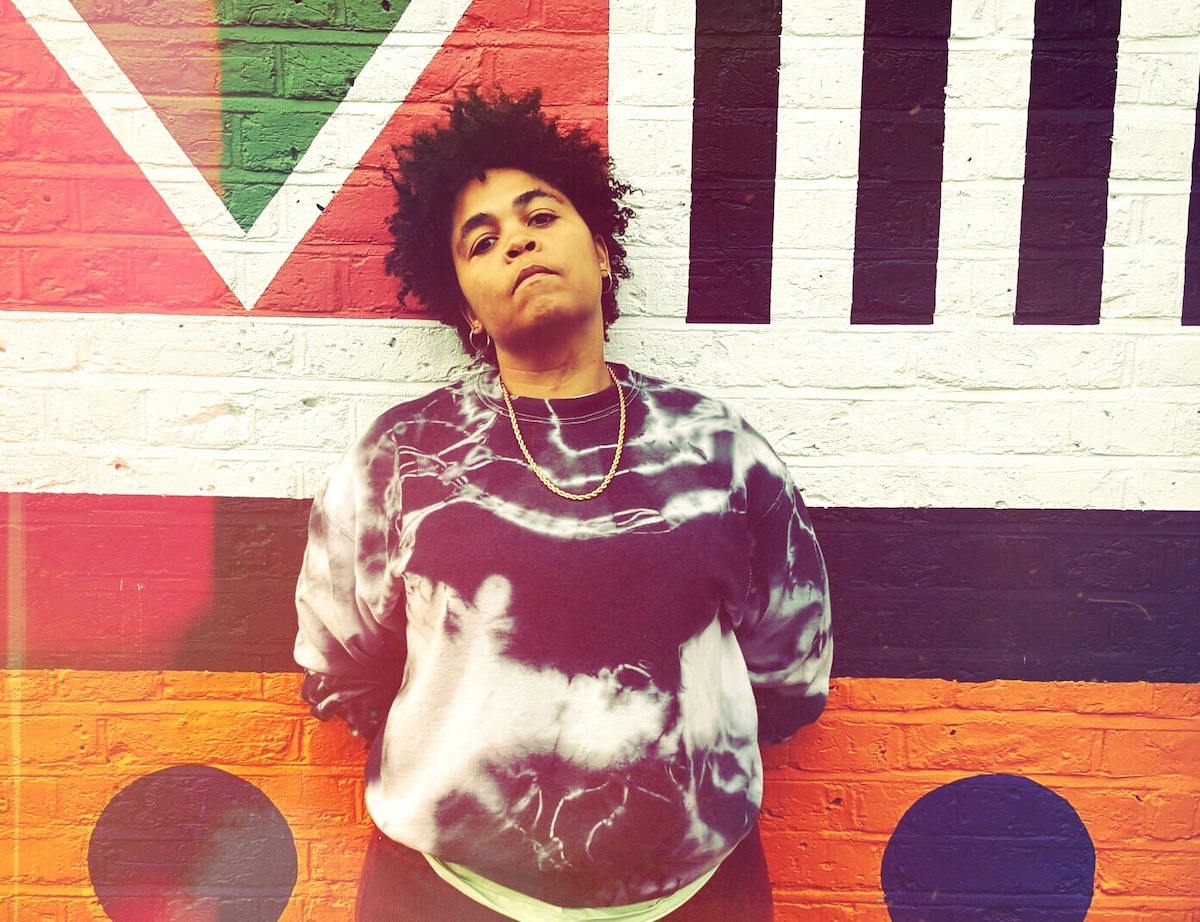A stunningly visceral and beautifully intimate reckoning, Alaska Reid’s ‘Big Bunny’ weaves her signature dark and moody indie rock into a raw, hauntingly vulnerable, and emotionally cathartic listening experience for all. Here, the singer/songwriter discusses Dinosaur Jr., Dungeons & Dragons, poetry, and shares stories from Montana – all in addition to plunging deep into the depths of her breathtaking debut EP.
Stream: ‘Big Bunny’ – Alaska Reid
[soundcloud url=”https://api.soundcloud.com/playlists/1142764981?secret_token=s-G3hvKH9MSs2″ params=”color=ff5500&auto_play=true&visual=true&hide_related=false&show_comments=true&show_user=true&show_reposts=false” width=”100%” height=”450″ iframe=”true” /]
Time and again, Alaska Reid has proven herself to be amongst our generation’s finest artists.
A clever and emotionally savvy songwriter with an impeccable ability to coax feelings out of her instruments, off the page, and into an audience, the 24-year-old Montana native has already worn many faces over a decade-long independent music career. Reid’s debut solo EP finds her more sure of herself and her sound than ever: A stunningly visceral and beautifully intimate reckoning, Big Bunny weaves her signature dark and moody indie rock into a raw, hauntingly vulnerable, and emotionally cathartic listening experience for all.
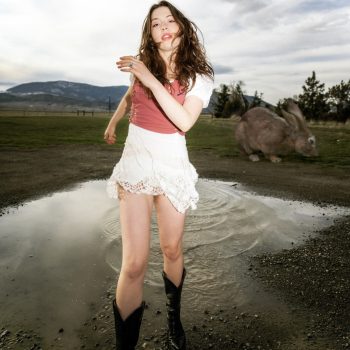
Lean into me, don’t leave me naive
I’m your teen-ex-lover you’ve died in my dreams
Lean into me I still can’t sleep
Lots of teen ex lovers have died in my dreams
Hey baby why don’t they want me
Hey baby you’ll always haunt me
Somewhere in oblivion
Searching for my midnight sun
– “Oblivion,” Alaska Reid
Atwood Magazine is proud to be premiering Alaska Reid’s debut EP Big Bunny, out December 11 via Terrible Records. A laudable milestone years in the making, Big Bunny arrives in the wake of a stream of moving pre-release singles that began with Reid’s solo debut, “Quake” in May 2019.
An Atwood Magazine “artist-to-watch,” Reid was previously vocalist and primary songwriter in the band Alyeska, who released their one (and only) album Crush in 2017. “Crush is fresh and seductive – an intensely raw, vulnerable and vibing mesh of rock, folk and dream-pop that so perfectly captures the weight of the world as it falls on our shoulders,” Atwood Magazine wrote at the time, giving the album a score of 9.1/10. “It’s a coming-of-age record, full of energy and excitement, hesitation and agitation. Sometimes, it feels like the diary of a jaded, agnostic nihilist; other times, it’s more like an overwhelming release of pure tension, a shaking-off of all of life’s dirt, dust and grime. Always, it’s utter brilliance.”
Produced by John Agnello, Crush garnered critical underground acclaim, thanks in large part to Reid’s stirring lyricism and vocal performance – both of which carry into her solo work today.
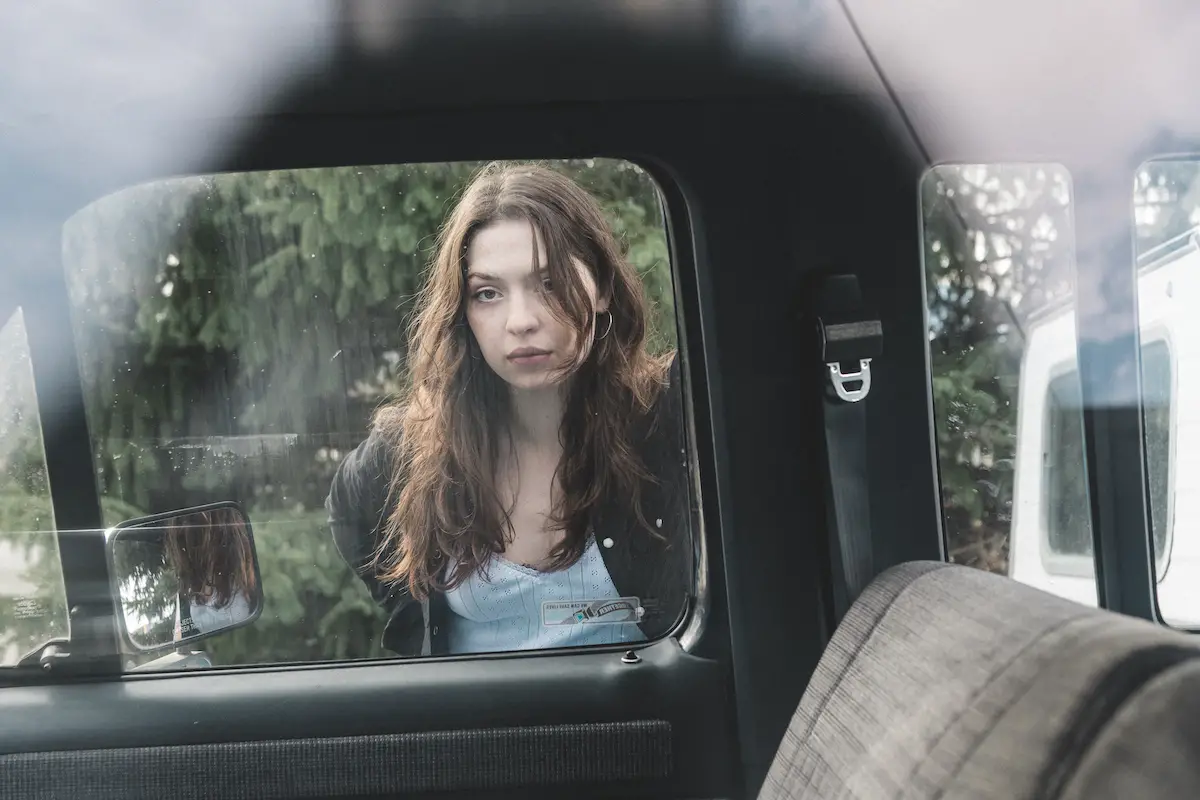
“When I was doing the band, I had a lot of rules and I wanted to be punky,” Reid says, recalling her work in Alyeska. “I love it, but I think I’m now just sort of moving away. I’m writing consciously about more real stuff in my life in this EP – I was always writing honestly in the band, but I was really young. And I think when you’re so young, it’s hard to really arrange and condense how you feel.”
Reid has been hard at work on all those things that shined so bright in Alyeska’s music, and it shows. Her recently released songs “Amber” and “Boys from Town” were both featured as Atwood Editor’s Picks, with the former described as a glowing expression of maturity and being in-the-moment: “Intimate and rugged in true Alaska Reid fashion, the song is something of an ode to being present in a relationship’s here and now – it’s about not worrying about what may happen, or overthinking things, and instead just letting love and that connection wash over you… To say “Amber” is breathtaking would be an understatement; it’s absolutely inspiring.”
Meanwhile, “Boys from Town” received praise as a “stirringly subdued and utterly majestic” dark pop/rock song, with ripples of angst trickling through catchy and enthralling melodies.
I know you’re bored, but I’m anxious tonight
Take me by my old house this year one last time
I need a friend but you just want to
Kiss me hard to feed what’s hungry
I try and tell you something real
While you throw bottles in the creek
– “Boys from Town,” Alaska Reid
While Big Bunny owns its share of “coming-of-age” themes (just like its Alyeska predecessor), the record is undeniably mature – especially for an artist in her young twenties. Songs like “Warm” put Reid’s nuanced and thoughtful perspective on full display. “I’m trying to approach things in a more adult way,” Reid says in acknowledgment of her own growth and state of mind. “I know self-awareness can be dangerous, but… I think it’s like making a potion: I’m very conscious now of how much I’m putting into it of myself and from other things.”
Legs sticking to our seats
Winter melts away to asphalt and ice cream
I don’t feel like I have a lot of friends
My mom says you’ve got to learn to pretend
Getting good at letting go
I felt twisted when I was 20
Because kids they overdose
Kids they get too close
Me & my sister just trying to bury ghosts
Take it while you can I’ll let you hold my hand
Take it while you can it feels better the closer you stand
Warm people, warm cars and warm homes
Hold me close, never let me go
Warm people, warm cars and warm homes
Hold me close, never let me go
While the EP was executive produced by A. G. Cook (Charli XCX, Jónsi, PC Music), songs like “City Sadness” and “Pilot” are entirely self-produced works – a shift Reid plans to delve further into as her career progresses.
“I think that’s a big thing, is just me being self-sufficient in that way, ’cause I learned that I could do that with two of the songs,” Reid explains. “I think it’s definitely messy, and… I love it, and I love its weirdness and its imperfections, and the fact that it’s sometimes embarrassingly honest. And you know, I hope that other people will gravitate towards that and it will help them, because songs help me. Other people’s songs help me. So I think that’s what I hope. I hope people will see this sort of way in which it’s like a scrape or a cut, like you’re looking into something. It’s a part of me.”

Alaska Reid has struck out on her own, and the result is nothing short of spectacular.
This is not Alyeska; it’s even better; something pure and visceral and overwhelming and real. Alaska Reid is one of the most exciting and fresh voices in what can often feel like an increasingly homogenous pool of black, white, and grey.
A seductive, achingly honest record of self-discovery and unadulterated personal reflection, Big Bunny is Alaska Reid’s enchanting (re)introduction to the world: The start of something very special. Stream the record exclusively on Atwood Magazine ahead of its release, and get to know Alaska Reid in our in-depth interview below where she discusses Dinosaur Jr., Dungeons & Dragons, poetry, and shares stories from Montana – all in addition to plunging deep into the depths of her breathtaking debut EP, Big Bunny.
This is transformative music. Big Bunny is out everywhere December 11, 2020 via Terrible Records.
I did not mean to disappoint you like in dreams
We’d scratch our thighs on the cheat grass looking for a rabbit’s eye
Electric, run around let the sky turn pink
You were a wild child, sometimes we’re lost for awhile
But I can help it, I can help it
Oh Big Bunny it hurts so make it funny
Oh Big Bunny it hurts so make it funny
– “Big Bunny,” Alaska Reid
— —
:: stream/purchase Big Bunny here ::
Stream: ‘Big Bunny’ – Alaska Reid
[soundcloud url=”https://api.soundcloud.com/playlists/1142764981?secret_token=s-G3hvKH9MSs2″ params=”color=ff5500&auto_play=false&visual=true&hide_related=false&show_comments=true&show_user=true&show_reposts=false” width=”100%” height=”450″ iframe=”true” /]
A CONVERSATION WITH ALASKA REID
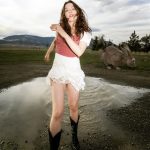
Atwood Magazine: Hey Alaska! As you know, I've listened to your music for a few years now. I was a big fan of your band Alyeska (still am), and I really enjoyed sitting with those songs. So first of all, thank you for taking the time. This is an interview a long time in the making.
Alaska Reid: Of course, yeah. I’m excited ’cause I’ve been doing interviews and… People don’t know my band stuff, which is no fault of theirs. I was thinking about the fact that I’ve known that you’ve liked the stuff for a while, so I think that’ll make things… I think you’ll understand some stuff more in a nice way.
“So… you make dark songs! What's that about?”
Alaska Reid: Yeah, I kinda did get that question yesterday, and I was like, “I don’t know.”
Well, I was excited to learn that you had gone solo! What spurred that decision?
Alaska Reid: Thank you. There’s two universes or two parallel existences that were going on that did that. I think the first thing was, is that I was playing shows in these clubs, in really nice communities of musicians, but I didn’t feel like I fit in. And the most important thing to me in my songs and in my music is my singing and my lyrics, and I just felt like that wasn’t what people were gravitating towards or the crowds weren’t really into that, and I felt like I was constantly having to try and be louder to be heard, and it just wasn’t happening. And I didn’t… And I, I don’t know, I just felt really stuck musically. I’d finished the EP/album with John Agnello, which I loved – ‘Crush… ‘ And that was really exciting ’cause I felt really fulfilled by that, but I didn’t know how I would progress further within that genre and still make it exciting and still make it new, because I didn’t wanna be another band that just recorded like an indie album again. I just didn’t… I felt like I was progressing in some way and I was starting to listen to more music and being more open.
So that was kind of what was starting that. And then the second thing, the other universe that was happening or parallel existence is that stuff was really messy personally in the band, really, really messy, so… ‘Cause the band was me, I wrote all the songs, but I did have other people participate in a meaningful way, and then that got complicated and it was just… It was too much, I’m kind of done with bands. There’s just a lot of bad blood at band. There were even like… But yeah, it was just not good, so that was sort of… I felt like it was natural.
It felt like that was the band that you kind of cut your teeth in, so to speak. I know you guys did a bit of touring, and quite frankly, that record's gonna go down as kind of like a cult classic, at least in my head. Does it come off the same way for you in your personal experience?
Alaska Reid: Yeah, ’cause I was playing a lot before the band. I was playing solo and acoustic, and I feel like that was the beginning of just cutting my teeth, because it’s pretty hard to be like a 14-year-old girl playing in a sports bar on the Sunset Strip to a bunch of people who don’t really care. So I think I already started that sort of thing, but definitely the band, when I was doing the band, we started touring and that was like… Yeah, I wouldn’t trade that for anything. It was really difficult, some of those experiences, but I wouldn’t trade it for anything, ’cause you’re right, it did… I feel like I got a lot of toughness from that or something, I don’t know.
But in terms of the album, yeah, the album was amazing. It’s so weird, I just don’t… Kind of once I write a song, I don’t even feel like… This is so lame. I’ll just make this reference, because fuck it. But you know, in Harry Potter, I’m not even a big Harry Potter fan, but you know how Dumbledore draws these memories out of his head and he puts them in that basin or whatever? I kinda feel like that, once I take it out of my head and put it into song form and really perfect it that I don’t… It just feels like a different… I don’t know, it doesn’t even feel like as much a part of me anymore. Like I dip into it, and then I remember myself in those stages, but at the same time, I… I don’t know. So I can’t really say the album just feels like… I guess it’ll go down in my lifetime as a document of my time with the band in my early 20s, late teens, ’cause that’s when I was recording it and writing that stuff, so… But it’s weird. Yeah.
I know you've described this solo artistry as a “more unfiltered self.” What, to you, are the key differences between the music that we heard in your band, and Alaska Reid as the artist, aside from a different spelling of “Alyeska”/Alaska?
Alaska Reid: Oh yeah. Are you talking about in the song writing or also in the actual musical element of it?
Both.
Alaska Reid: Well, I’d say in the musical element, when I was doing the band, I had a lot of rules and I wanted to be punky. And I still have all those things, but I think in terms of my gravitation towards punk and the… Not punk really, but more like grunge and the Dinosaur Jr. sound, like John Agnello was part of. So I think I still have a lot of that and I love it, but I think I’m now just sort of moving away… And I would say with these songs, I don’t know. I think I’m writing consciously about more real stuff in my life in this EP, and I was always writing honestly in the band thing, but I was really young. And I think when you’re so young, it’s hard to really arrange and condense how you feel. So in the band, I am writing these things, but I don’t think I was in touch with what I was feeling. It was coming out in the songs, but not always in a focused manner. Even though I love those songs and I stand by them and I think they’re really good.
But for instance, I was playing one of the songs (“Tilt-A-Whirl”) off the Alyeska album a while ago, Crush, and I realized what it was about. And I thought it was so funny ’cause it was about me wanting to break up with somebody that I was in a relationship with and feeling really bogged down by that. And then, I didn’t think about that all because I was still in that relationship when I had written it and I thought I was happy. And then looking at it now, I remember where I was in my life and everything and I realized that that’s what I was writing about. So I really wasn’t connecting as many dots as I am with the new stuff. ‘Cause I think with the new stuff, I’m trying to approach things in a more adult way. I don’t know, I was just not in control when I think about that time. Like, I am but I’m not, I think because I was young and I’m still learning how to write.
This album is a little more cerebral, a little more personal, and you're a little bit more self-aware of it.
Alaska Reid: Yeah, yeah. I know self-awareness can be dangerous sometimes. But I think more just like, I’m trying to craft songs and I’m… Okay, I’ll say it like this. I think it’s like making a potion and I’m very conscious now of how much I’m putting into it of myself and from other things. And I think before I was less like that, I was still trying to figure myself out, if that makes sense.
That's two Harry Potter references in a five-minute span. So...
Alaska Reid: I’m not a Harry Potter fan. I mean, I am, I read it when I was younger like everyone else, but I think the references are more coming from… I play D&D, yeah. So I read a lot of other fantasy books and I play D&D, and I was playing this D&D game I have going that night. So I think I’m still in that realm of that sort of a thing.
My friends have been trying to get me to join their Dungeons & Dragons campaign, I've never played before. It's so daunting to come into something that you've never done like that.
Alaska Reid: I gotta say though, D&D is nice ’cause all the stuff with dice is kind of obnoxious, and creating your sheet is annoying because that’s the most difficult part. But if you just set that aside, it’s like the meat of the game is just pretending. And if you enjoy using your imagination then it’s pretty easy if you just focus on that part of it.
That's cool.
Alaska Reid: So yeah, I’m not a Harry Potter fan, I’m more a general fantasy fan, yeah.
Got it. So speaking of musical influence, you said you’re a big fan of Dinosaur Jr?
Alaska Reid: Oh yeah. Dinosaur, I think that’s my favorite band. Well, I don’t know now. It was my milk growing up. It made me stronger, that band, and I cry at their shows, so I love J Mascis and everything, yeah.
I want to ask you about your sound. You have this very distinct blend of... kind of indie rock with a sort of DIY grunge bent to it, and that's only become more front of mind in your solo stuff. Who are some of your greatest influences, especially when it comes to making your own music?
Alaska Reid: Yeah, greatest influences. I think Joni Mitchell is a really big influence lyrically, ’cause she writes about herself. Just verses purely her as a person in a really brutally honest way, but also her as a young woman, and I don’t think that there’s a lot of examples of that. And I think she’s really, really, really important for me because she allows herself to be selfish, and she allows herself to be angry, and she allows herself to be all these things irrationally, and she allows herself to be… Talk about taking advantage of people and being taken advantage of, and she’s just a really well… When you read her lyrics, you understand… Or at least you understand the part of her that she wants to put out into the public and it’s honest. So she’s a really big influence for me ’cause I wanna be like that. ‘Cause sometimes, I don’t feel like there’s a lot of women in the past who have been able to write like that. And to me she’s… Yeah, she’s one of those really… She’s really important. And then the other person that’s a really big influence to me, or band rather, is The Replacements and Paul Westerberg. ‘Cause he’s another person… He writes with brutal honesty and he writes these amazing stories. He’s insane. Actually, it upsets me sometimes ’cause I read his lyrics and I wanna be like him. I’m just like, “Fucking hell.” It’s like everything’s so compact, but it’s so… Each sentence carries a world.
And then Dinosaur Jr, it’s hard for me to say all the things I love about Dino, ’cause it just feels… It was like my growing up… Dinosaur Jr. Was like my childhood and my teenage years and inspiring me to play guitar and shit like that and the first concert I went to. So it’s really hard for me to kind of pick apart why I love Dino, but, yeah, it’s just ingrained in my body, the Dinosaur Jr. And then in terms of my singing, I was really, really influenced, actually, by Ella Fitzgerald ’cause I took lessons, voice lessons when I first started going back and forth between Montana and LA with a woman whose husband had been the accompanist for Ella Fitzgerald.
Wow!
Alaska Reid: And so that was really insane. And I was listening, in that period of my life, which would have been like the end of middle school, I was listening to a ton of Ella Fitzgerald and stuff like that. And yeah, so I think those are my top people.
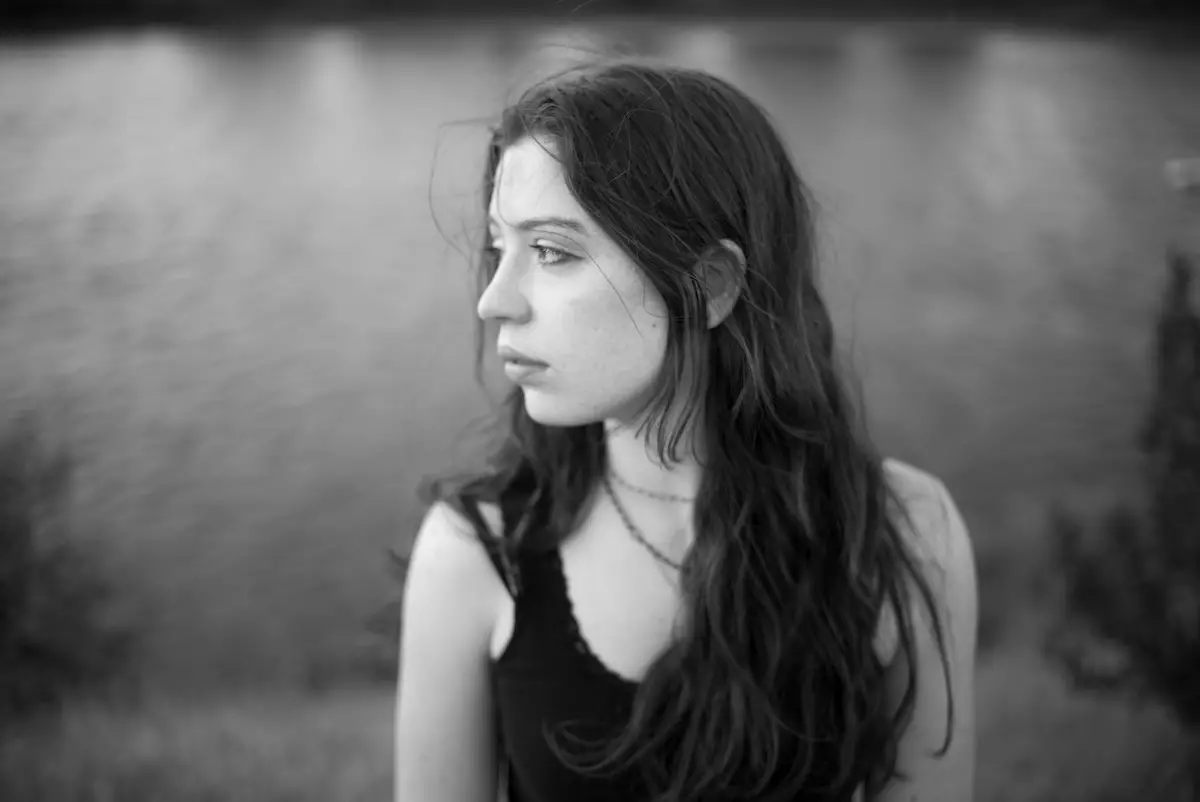
That's a pretty diverse array of artists. You've clearly given it some thought. You were talking earlier about Joni Mitchell's influence – how she was so honest and very true to herself, and let herself be the person that she was rather, than what society saw her as. You have called this EP a diary of your life, as well as a collection of short stories and songs. I was wondering if you could speak more to what you've done in this vein of showcasing a young woman and telling her story in your own music.
Alaska Reid: Yeah, I think… I’m kind of going back to all the songs in my head right now. I don’t know, in terms of it, I think what I’ve done is like… Yeah, I’ve documented a lot of things in my life and then going back to this idea of making a potion, I’ve also tried to incorporate other people around me, lives of young women around me that I know or that I’ve met or that I’ve had some sort of encounter with and kind of tried to blend it together so I don’t fully expose my entire fucking soul or story, do you know what I’m saying? But at the same time, it is like, I don’t know, it’s a document of that ’cause I’m not special. I just think in terms of… I don’t wanna speak on behalf of other people, but when I say I’m doing these stories about young women it’s like friends of mine and talking about boyfriends that they’ve lost and the complications of that and is it better to be with someone and feel alone, but still have someone there or to be completely alone and have no one there? Do you know what I’m saying? So I think that’s sort of how I’m approaching it as a diary. And I talk about growing up and I talk about Montana and yeah.
And I think it’s really… When I think about the songs in a kind of comprehensive way, I do think it’s kind of choppy, but I think that is indicative of the truth, like I’ve had a lot of changes in my life from when I first started writing those songs until now, especially within music and everything. And so I think it’s a kind of reflection on that, sort of all the different lines of that… If that kind of answers your question.
No, it does, and I know that one of the exciting things about your music is it's not all autobiographical – that you are telling your stories, but you're also telling the stories of people who are around you. Do you find that it’s harder for you to tell someone else's story than your own, or the other way around?
Alaska Reid: I think I’m always kind of telling my story, but I don’t… But it’s too hard, yeah, it’s too hard for me, I think in terms of talking about past relationships, I’m sort of like, I’d rather write about someone else and their ex because I don’t wanna actually really think about my previous relationships or give those people in my life, like any power knowing that a song is directly about them. So I think I’m being a coward probably and I’m hiding behind a mixture of other people’s things, but also it is hard to tell other people’s stories ’cause you’re probably not getting it right or right… I don’t even know what right means, but right in their own mind, ’cause I wanna be kind ’cause I write things about people I love so… But everyone’s really flawed, myself included. You know what I’m saying?
I guess every story is bastardized in some way, and you're just presenting a point of view.
Alaska Reid: Yeah, it’s a performance. And also, that’s the thing I really like about country music is I think that style of writing a little bit about yourself, putting a little bit about someone else mixed up or completely someone else, that’s a really common thing in country music. I think that’s the biggest takeaway I’ve had from that and I love that element of country, so…
Good segue, I know that you first started releasing Americana-ish country music some 10 or 15 years ago. What's one thing you wish you could go back and tell yourself then when you were first starting out?
Alaska Reid: I gotta think about that. I really don’t know. I’m kind of proud of myself then, ’cause I think I was a lot less hot-headed and crazy. I don’t know. Maybe I would have told myself, “Don’t be so trusting.” I eventually learned that: Don’t go to these meetings alone. Stuff like that.
How to navigate the music industry itself?
Alaska Reid: Yeah, but I feel like I was pretty grounded then. And I like the fact that I wasn’t embarrassed. I think I would probably tell myself to tell me again, my old self now that I should… That it was cool when I was just less embarrassed, not that I am embarrassed, but… Do you know what I’m saying? Yeah, ’cause I used to wear Patsy Cline dresses and play crazy songs and stuff like that and… That’s pretty cool. Those were probably the golden days of my music. Even though I like my music more now, but in terms of me just getting up there and playing and…
Giving zero f*cks. Did that music actually ever get recorded and released?
Alaska Reid: Oh yeah. No, it was out in the world. It actually terrifies me because I’ll go on Spotify sometimes to do admin shit and it’ll show on my end like my old release but it’ll be like greyed out so you can’t access it. But I’m just like, “How the fuck is like Spotify still… Do they still have this?” I’m so concerned like it’s still in the world somewhere. There are CDs. The album was called’Power Lines. I have an even older thing that I don’t even know where the fuck it is, and I did it with Dave Cobb before he moved… Just when he moved to Nashville. He’s an amazing producer and I think he’s like won a Grammy or been nominated now at this point in his life. But I was like 14 or something in Nashville, I don’t know where it went. I had so many weird recordings. It’s like insane. I have so many.
That's really cool. Thank you for sharing. So let's talk about this EP now, Big Bunny. One thing I absolutely love about this record is its permeating darkness and cohesion. It's a very singular effort. How do you feel this record captures who you are as a person and artist in 2020?
Alaska Reid: I would say that it captures me because… I think it represents me in some ways becoming a little bit more open and trying to be a little bit kinder. And I think, it’s just a representation of this shift because in my late teens and early 20s, I was really… I feel like that was a closed-off period in my life like. Okay, so if I’m talking about pre that in my country Americana phase being, giving no fucks and being pretty open and investing time in exactly what I thought was cool and not worrying about anyone else. I think in this middle period of having a band, I was putting up the facade of giving no fucks, but I think I was a lot more… I had a lot more rules. I was afraid to get into things that I was into and I was just like a teenager or whatever. And then I think now, it’s this shift of me probably trying to… Of becoming a new self and that some ways harkens back to an old self where I’m just trying to be open and not be embarrassed and have blinders on, in terms of like, “This is what I’m doing, and I don’t need to worry about what other people expect or want.” And I think it’s the beginning of that evolution. Because a lot changed for me musically from the end of my band to this moment. And I think a lot changed in my life as well, so I think that is what that captures.
Is Big Bunny a presentation of scattered tracks throughout your history, or is it a kind of fluid, mindfully crafted representation of you and your music, post band?
Alaska Reid: I think it’s a combo. I think… I haven’t been in a period yet in my career where I’ve been able to be like, “Oh, I’m gonna be on this tour, like cycle, then album cycle”, you know what I’m saying? So I don’t think I’ve had a long enough time. I really feel like, up until this point, it’s been like the Wild West, like, “What is going on? I have no control.” I do in some way, but I’m trying to work with people and people aren’t getting back to me, but then I’m finding these other really cool people, and I’m figuring shit out and then moving around and I’m trying to make things work and… So I feel like in that way, I don’t really have strict divisions of what other artists further on in their career have, even though I’ve been doing it for so long.
Do any of the EP’s songs harken back to the band era?
Alaska Reid: Yeah, to answer your question in a more specific way, basically the one song that is my oldest song on the EP is “Oblivion” in a technical sense, because “Oblivion” is… The chords of “Oblivion,” those are the chords of the first song I ever wrote. Ever and wrote and released. But then I loved it so much, I got rid of the lyrics, I wasn’t jazzed about the melody, I just kept holding on to it knowing it was close to me, but not really sure how to bring it to fruition in a good way. And then I ended up meeting people to help me and whatnot, produce it in a cool way. So that’s the oldest song technically, the bones of that song, and then I was performing “Quake” and “Big Bunny” with my band, and then other songs have lyrical content that is about touring with the band and shit like that, so it’s kind of like… I guess it’s some sort of weird gradient, a little bit from here and there.
I know you recorded and produced some of the music yourself, and I know some of these songs you worked on with A.G. Cook. Is it kind of a smorgasbord of recordings with X, Y, Z person made when you were able to make it happen?
Alaska Reid: Yeah, yeah, I would say that’s it. I didn’t have… A.G. exec-produced the album. But in terms of the rest of it, it was… Yeah, I think it is really reflective of my life, like me kind of trying out different things and meeting new people and getting my mind blown and whatnot. Yeah, so I would say it is definitely a smorgasbord in that way.
How did you and Cook come to work together, and how did working with him affect the recording? Do you feel like his presence is at all palpable or apparent in this EP?
Alaska Reid: Yeah, I think it is. I think it is in a couple of different ways. I think one of the ways it’s palpable is in the fact that he is really… Leaves room for me to be me, which is amazing. So this sort of absence of stuff is where you can see him, because I feel like a lot of producers are afraid of that, and I feel like people are afraid of that in any field of letting there be space. So I see him in that and then also he is someone who… I talked about being so closed up when I was in the band, he’s really somebody that blew my mind because I fucking hated pop music when I was playing in Alyeska. I was so just like bitchy about it, and I was bitchy about a lot of things. And then I met him and I realized everything I thought was… Making rules is stupid, pop is a very fluid definition and there’s nothing to be afraid of if you like how it sounds, like I liked how non-organic drum sounded, and I… A. G. just was like, “Yeah.” I don’t know, he just didn’t… He’s really somebody, just the way that he operates in the world, and his openness and his sort of kindness and his interest in everything, no matter what it is, or no matter what other people think… Watching that is a really good example for somebody, for me in music, ’cause I realized… I don’t know, I felt like growing up in terms of realizing that I don’t need to have these silly ideas about things and close myself off musically, if that makes any sense.
He gave you room to be you in terms of letting you have space and letting your music literally have physical space, and he also broke down some of those barriers of assumptions. Are you more open to making a pop song today than you were a few years ago?
Alaska Reid: Oh yeah, definitely. I would love to make a pop song. I’m actually really into it now ’cause it’s so hard, I realized how hard it is, it’s really hard to write a tight song that connects with a bunch of people. I’m talking about good pop songs by the way.
I have a really different definition of pop, I’m not really… I don’t know what’s going on in the pop world at all. I’m talking more about this idea, my own personal definition of pop and the artists that I put in it, which is basically like A. G., Charli. And then I am thinking about songs like “Dreams” by Fleetwood Mac, where I’m like, “Wow.” To me, that’s a pop song because it’s such a tight song, and it has these kind of overarching themes that anyone can connect to, but at the same time, there is a specificity, if that makes sense. So that’s my idea of pop. I don’t know…
If those are the definitions, then I would argue that you made a pop record.
Alaska Reid: Yeah.
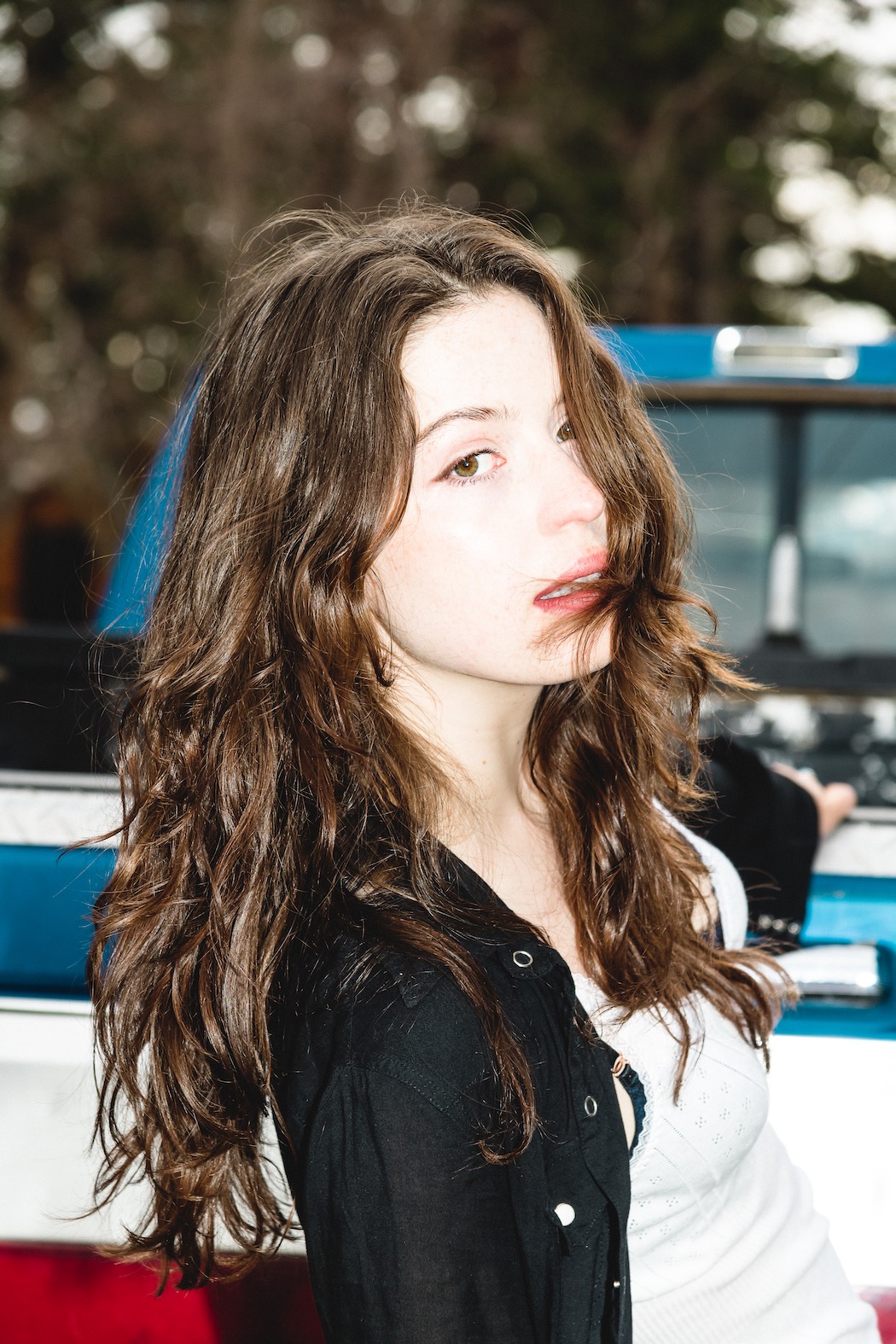
What was your vision going into Big Bunny, and did that change over time?
Alaska Reid: I think my vision was just to put out a body of work. I don’t know, just show people what I’m really up to and what I really want people to hear from me. Yeah, I think that was just my idea and not being afraid of being a solo artist.
You debuted last May, actually. Did you know at the time that you wanted to release an EP a year and change ago, or did this occur happenstance over months?
Alaska Reid: Oh no, I knew. I was just… I had a lot of things in my life that were really difficult to… Not in terms of real… I mean, in my musical life, difficulties within my musical life. I just had a lot of things to deal with, with that. So I always wanted to put on an EP, but I started working with a new manager probably a little before I debuted the song, and then I talked to a bunch of labels and I was just figuring a lot of things out and trying to find how I would wanna do the sound. I think it’s like… Yeah, I think it’s kind of tricky when you’re a young artist. And I don’t know if people talk about it a lot, but I think it’s just… It is really tricky, you obviously have more control because you’re not tethered to things, but at the same time, you really also don’t have a lot of control because you gotta financially figure things out. I don’t know if you wanna put this in your interview, but…
I think it's important to talk about it; you're the only person who is in charge of your narrative at this time.
Alaska Reid: Yeah, yeah, that and then it’s the duality of that and then also being like, “Look, I don’t wanna be a fucking bedroom pop artist, but I wanna have this great hi-fi sound, but I don’t have the money to do that.” And so I think it’s wrestling with complete control and then not that much control at the same time.
100%. So you reintroduced yourself last year with the songs “Quake” and “Mermaid Tears” the latter of whose lyric, “Maybe time is gonna save me,” really stands out to me. What is special for you about those two songs?
Alaska Reid: “Quake” is really special because that is the… Marks the beginning of my sort of shift. ‘Cause as I said, I was playing that with the band and then I worked on that with A. G. And he restructured it and we redid some things together, and that blew my mind ’cause it’s amazing to see someone take something and whip it into shape. That’s the way to learn how to do that with other things. And also, that was a really fun time in my life, ’cause I was in LA and I was sort of meeting people in a new community of music and getting really excited by the kind of openness and sweetness of it… Not that I don’t like the Indie scene, but you know, I think I was at a time when I just needed a shake up and that was the beginning of it and it felt really exciting. And I was traveling more for “Quake” and I was doing stuff in new studios and I was getting into it.
“Quake” also is important because when I talk about this idea of writing about other young women’s narratives, that was the kind of first time that I was doing that in a slightly… In a conscious way, per se. I was flying back to Montana from LA, and I met a girl on the plane, and we were sitting next to each other. And she… It was like a morning flight and she ordered wine. And the stewardess was pretty nasty and was like carding her, but also being very judgmental. And the girl took out her card and it showed that she was the exact same age as I was. And so then we started talking, and she was kind of talking about her relationship and being in this abusive… And she was a very sweet person but she was in this really abusive relationship and she was basically going back to Montana to be with this person to try and make it work again.
I was sort of trying to tell her as a fucking stranger on the plane like, “Look you don’t, you know, you don’t have to tolerate this” and stuff. And she was a really strong person, but who knows, people’s lives are so weird. We don’t know how they digest things or whatever. But so that was the kind of beginning of me doing that.
And then in terms of “Mermaid Tears”… I love that song. I had this kind of fun idea. There’s a place in Montana called the Sip ‘n Dip, and it’s like a bar in Great Falls, I think. And I’ve never been there, but I’ve been fascinated by it. And they have, they have a kind of glass tank and they have mermaids, like waitresses dressed up as mermaids swimming around in a glass tank. Well, not waitresses, I guess they on and off their waiting shifts, they go between being a mermaid and being a cocktail waitress, whatever. I don’t know. But I have this kind of a… And at the same time, when I wrote that I was reading Rock Springs, the collection of short stories by Richard Ford. And I just kinda kept thinking about almost writing a short story about somebody who’s a kind of small town princess, and they put on this mermaid costume and yet they think they’re gonna drown on the ugly side of town. Because I think, to me, that was like a really interesting thing to explore, and I think I begin to explore that. And within that, I infuse it with parts of my life in a sort of relationship that wasn’t going well, but through the lens of this kind of idea of another character, so I could study it more… If that makes sense.
You mentioned that you had been playing the song ''Big Bunny'' a lot with the band. You chose to open the EP with this song, and it also owns the title of the overall collection. I feel like this track sets the tone for what we're going to hear to come... Why start there? Why begin with that song?
Alaska Reid: You know what, I think I get pissed off at myself ’cause I take myself too seriously, and I don’t wanna be that person, so I could have done the… The EP as something… As one of the songs that’s a little bit more obviously tender, but then I was just like, “Fuck it.” And I was talking to my manager, Ethan, and he’s really smart about sequencing and vinyl, just anything like that, and I was talking to AG about it, and he’s especially good at that, he helped me sequence the EP. But we were kind of just like, it’s an amazing… It’s such a weird but obvious thing, like “Big Bunny,” and it obviously has a symbolic element in your life because I love bunnies and I’ve always… I don’t know if you’ve read where I talked about that song being about me being a kid growing up in the valley in Montana, not in the valley in LA [chuckle], but we call it the valley here too. And running around trying to catch a bunny and having nothing to do and being endless days and being like… My mom taking care of us, well, that sort of thing. I don’t know, it just… I also think about it in this other way. This isn’t very coherent what I’m saying.
I think I’m still trying to figure it out, but I talk about the “Golden Compass” and this idea of the main character having a daemon, whatever… Spelled in that Old English way I guess, but when I was… When I was like ten, eleven, twelve, I carried around like a plastic animal toy, I don’t know why, ’cause I really wanted one, and I don’t know if this is a weird connection to make, but I think sometimes, we all have so many anxieties that we turn towards something outside of ourselves to place them in, something that will reassure us or something that’s lucky, like the idea of luck. And so I think that was my thing with bunnies and big bunny and this idea of having a daemon, is that I don’t believe in God, but I try and find other things to believe in, perhaps irrationally, if that makes sense.
It was interesting to read about the His Dark Materials series again, after such a long time. I read those books when I was a kid too, and it brought back a rush of memories and.
Alaska Reid: Yeah, maybe that’s a sign you gotta join this D&D group just…
Maybe, we'll see. There's lots of pandemic left to go, and only so many shows on TV and songs to review.
Alaska Reid: That’s true, that’s true.
“I'm getting good at letting go,” you sing on “Warm.” “Kids they overdose, kids they get too close. Me and my sister just trying to bury ghosts.” Those are some of my favorite lyrics on the entire EP. What is this touching song about for you?
Alaska Reid: Thank you. Yeah, you know this song, I think this song is about… I think in my early 20s, and I think my teens as well like in LA, on the music scene and you know with my sister like on the scene in general, and you know feeling really lonely, ’cause it feels like a battle… It felt like a battle sometimes. And also just like… And also just getting involved with people that inexplicably, in some way hurt you and not purposely, but who knows, whatever, it’s just like the fact of life and you know trying to put that aside and compartmentalize and you know that sort of thing and it has a lot to do too with just me and my sister and relationships and other things and… Me and my sister as being like a team and being like, “Wow, wow. Remember those days, remember that and yeah what a weird time.”
Has she joined you on your music career?
Alaska Reid: No, she she was living in LA. She helped me, she directed the video too for “Oblivion.” I mean she’s a painter, she’s an artist, and she also acts as well. And I think… You know we were just like going out, going to parties, going to weird shows, and you know she was my roadie. [chuckle] You know, just like us against the world kinda thing.
And also the other thing, the other thing I was thinking about, what also inspired the lyrics big time, the chorus, “Warm people, warm cars and warm homes,” was I watched American Movie, have you seen that?
I have not.
Alaska Reid: It’s great, it’s a documentary about a guy who’s trying to make a movie, a horror film, in the middle of… I don’t know, I can’t remember exactly where he is, it’s some kind of small town or area in the Midwest. But his passion and his sort of like, you know perseverance in the film, I think that’s what inspired that, ’cause he has this part and he talks about how when he’s all like you know worked up… This is in my memory, so who knows? He talks about when he was all worked up and he goes to, you know the only way he can calm down is he goes and sits in his warm car with the heater on, in like the dead of winter at the airport, and watches the planes take off just to write his movie scripts. So I was kinda thinking of that too, I was thinking of both those things.
That's fascinating. It's so obvious to me that this EP means so much more to you. It's clear to me that, for you as a lyricist and musician, there's just so much in here. How do you feel you've grown as a result of making the Big Bunny EP?
Alaska Reid: Well, I think I’ve grown in an obvious sense in the fact that I think the next thing I’m gonna do, I’m probably gonna try and produce a lot of it myself, and then have maybe someone come in and guide me a little bit. So I think that’s a big thing, is just me being self-sufficient in that way, ’cause I learned that I could do that with two of the songs.
I think it’s definitely messy, and… I love it, and I love its weirdness and its imperfections, and the fact that it’s sometimes embarrassingly honest. And you know I hope that other people will gravitate towards that and it will help them, you know because songs help me. Other peoples songs help me. So I think that’s what I hope. I hope people will see this sort of way in which it’s like a scrape or a cut, like it’s you know… You’re looking into something. It’s like… It’s yeah, it’s a part of me. So, yeah.
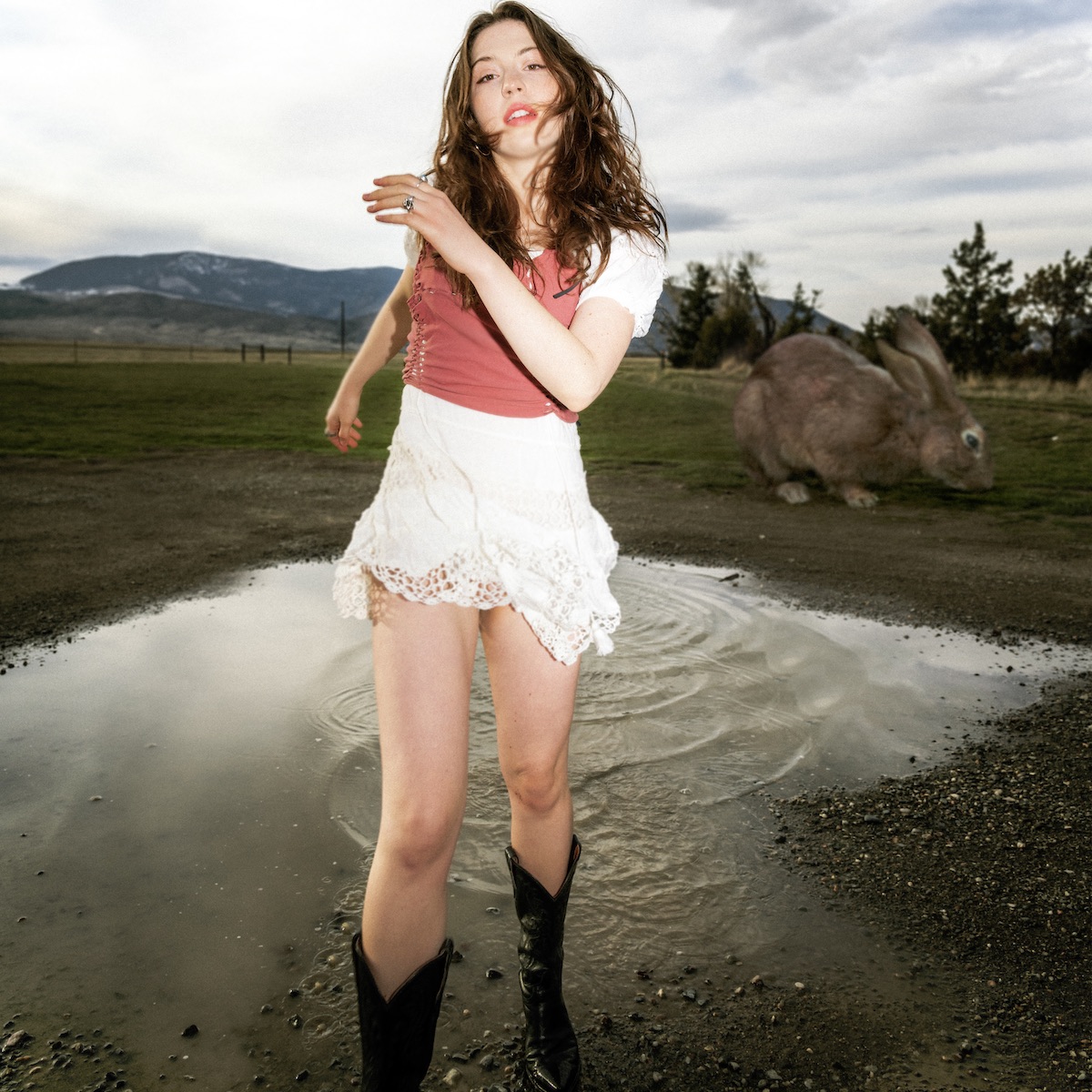
Do you have any personal favorite tracks or special moments of this EP that stand out to you?
Alaska Reid: Really “Oblivion” is my favorite song. Is one of my favorite songs. Because making the video too was really amazing and it’s about a very particular thing. And I got to make the video with my sister and all the people that we grew up with in Livingston on a winter break when everyone was home from school and whatnot, and so that one’s really special to me. I have a lot of memories tied up in that, and then also like “Quake,” it was another song that was the beginning of me working with someone like Rodaidh and AG where it just felt so exciting to make it, and I remember tracking the vocals and putting my all into it, and leaving the studio exhausted, but feeling almost drunk on the fact that I was really proud of it and loved it. Or that I’d done… Or I’d put my fucking soul into it. So I really love that song. I’m an idiot, ’cause I have so many songs going right now, I gotta go look at my list right now of what else is on it.
While we're talking about “Oblivion,” I actually skipped a question I had about it earlier. But I'll just say that the lyrics, “I felt lonely being around you,” I think they really pack a punch.
Alaska Reid: Oh, thank you.
There's a lot of intimate emotion in there, and to capture loneliness with togetherness, romance and break-up, isolation... It's a real story, and there's a lot to take away from it in just four minutes’ time.
Alaska Reid: Thank you, yeah. You know that one? Yeah. Yeah, that one? Yeah, that one’s one of my favorite songs. The other one, I really love, I really love “Pilot” too, and I love “City Sadness,” and I love all of them in different ways. I’m listing “Pilot,” because that’s like a… That one’s like an old dog, like I’ve carried that one with me and I… That’s like a trustee song, like that’s my trustee song. They feel like pets in some way. And then, yeah, I love “City Sadness,” ’cause I think that is one of my few songs that’s just like a love song. Like I’m actually trying to be nice and sweet. [chuckle] I’m not trying to be like, “Wow! This is actually flawed, even though I’m in love with someone, or someone’s in love with someone, but it’s deeply flawed and fucked up.” I think that one, I just, I’m… That one I wrote as a conversation between me and somebody else, and I’m the one who’s being like, “No, this thing is actually very pure.” To hear someone else talk about something is slightly less pure in that sort of way, or not… Pure is not the word for the other person’s thing, but if that makes sense…
Listening back with fresh ears, what are you most proud of or impressed about this record?
Alaska Reid: I’m still kind of a high off me being able to record myself for “City Sadness.” A year ago, I’d go to sessions even with people that kind of sucked, not that I had that often, but sometimes I didn’t have that, and I was like, “Wow! They’re still so magical, because they can work this computer and record and make stuff sound good.” And then I realized that I can do it and I was like, “Oh, my God.” So I think that is really exciting, ’cause I like how “City Sadness” sounds. I did all those vocals. I stacked those vocals in my bedroom. And the other thing I think I’m impressed by is, I really love the lyrics to “Blood Ice.” So looking back at them now, I’m like, “Wow, that was cool that I wrote that.” And I love the vocal take for “Oblivion,” ’cause it’s pretty emotional, so if I’m… There’s just my like, “Yeah, I’m proud of myself,” thing.
You talked about a few of those. I’d like go back to “Pilot” and “Blood Ice,” because those are the last two songs on the EP – essentially, the ending. Why end the record with these two tracks?
Alaska Reid: I had the weirdest fucking sequence, it was horrible. AG actually sequenced it, and he was like, “This is how you do a classy sequence,” so, and then I listened to it, and those two are at the end. I was like, “Oh, yeah, that makes sense.” But I don’t know. I think I really like them being at the end of the thing, because they’re… They are the songs that are… I wrote them completely by myself.
And they are both slightly older as well, and so they just feel like a sort of foundation or this is like… This is really… I don’t know, it’s just like… The end is like, “Oh, this is kind of like this honest and pure version of me and my song writing,” I think is kind of what is nice to close on, ’cause it kinda shows my roots in terms of going back to stuff that’s a little bit Americana and whatnot, or “Blood Ice” originates from a poem I wrote, and that one is… That’s probably the easiest to follow autobiographically of mine or in a biographical sense… Do you know what I’m saying? Because that is a pretty honest poem about someone in my life, and so I think it’s nice to kinda end on that, ’cause they’re both rich story songs. Yeah.
I like that you refer to them as story songs. Do you feel like your world of Montana or your new world of LA seep into the music that you make?
Alaska Reid: Definitely, I think I was kind of afraid to write about LA because it’s like… So many people have gone there like, how do you do it? You gotta do it well, if you’re gonna do it. And it’s a harder place to write, it’s just a harder place to write about I think. I mean, it is and isn’t. I don’t know. I don’t wanna compare places… I did that so much in another interview and I was like, “Oh God, I don’t want anyone to hate me,” but…
[About Montana,] 110%. I get so much inspiration. I actually feel like… I felt kinda lousy ’cause I feel like I’m a thief in some way, I’m stealing, I am stealing things that I see, situations that I’m in. And then I fucking add color to them to make it more interesting. So it’s pretty funny in that way, and I think that Montana is an amazing place, there is so many good cool, interesting people here. I think sometimes when you’re in LA and you’re on the scene… I don’t want this to come out… Come out wrong. Let me think of a way to say this. I got really schooled like a year, a year or two ago, ’cause we have some family and friends here, and I was talking to them about something I can’t remember, there are some… This town that I am from in Montana has a lot of artists and writers and cool people.
It’s like an American Western writer town, not necessarily western, but I mean like American West as a genre and I think I was just talking about that and I was like, “Yeah, there are so many cool, interesting people here,” and I was like talking about writers, and then the person’s stopped me and he’s like, “There’s so many interesting people here that aren’t writers, that aren’t actors that… Don’t do any of that shit.” And I was like, “Yeah, he’s completely right. It’s filled with interesting people, that I’m lucky to be able to meet.” So I think I’m definitely informed by that. And it’s beautiful here too, it’s like nature is so beautiful here, so you’d be an idiot not to write about it sometimes.
Are you listening to any artists these days that you would recommend to our readers?
Alaska Reid: Well, I’m sure your readers know but I love Adrianne Lenker, I think she’s an amazing writer. She’s great. I always listen to The Replacements, so I hope everyone’s always listening to the Replacements with me. I love Lyle Lovett. He’s a mentor of mine. He’s amazing. He’s just… He’s incredible, so I hope people listen to Lyle. I’m trying to think of who else… Yeah, I don’t know. I listen to, I’m really into… I love Charli XCX. I told you that I was so… She’s like the pop star, she’s my pop star of choice. I listen to that. I listen to a lot of old country… I love Iris DeMent. I don’t know if you know Iris DeMent? This song, I actually don’t like listening to it all the time, ’cause it makes me upset. But if you look up “Our Town” by Iris DeMent, it’s an incredible song. Those are just some of the people I listen to. I’m trying to think what else… I listen to Pegboy, kind of Chicago punk.
Closing up our conversation about your music, what do you hope others take away from Big Bunny and listening to this album?
Alaska Reid: I hope people listen to my lyrics, and I hope people get really excited about lyrics. I help people keep… I hope people keep getting… I feel like people are slowly getting more excited about lyrics, but I just really hope that people get really into it, ’cause you know, I love listen to lyrics and I love reading people’s poems and I think the world would probably be a better place if we all invested in that a little bit more, but I don’t know. And then in terms of what I’m trying to say, that’s pretty tricky… I don’t wanna speak for everyone.
And do you have any favorite poems that you would recommend folks go read right now after they give your music a listen?
Alaska Reid: Well, I’m really bad at looking at the titles of poems, ’cause I have a bunch of books and I just read them through, but it terms of poets, I love Jim Harrison, and I love Ray Young Bear. Ray Young Bear is one of the most amazing poets, I actually… He’s an internet pal of mine. He’s incredible. I think the poem he has, “One Chip of Human Bone” is this incredible one. He’s amazing and he’s a really sweet person, people should all buy his book Manifestation Wolverine. What’s another poem I like? I’m trying to think. What else have I been reading? This isn’t really poems but here… Sorry, this is my bedroom. This is Ray Young Bear’s book, this is great, and then I’ve been reading Yeats, it’s kind of like the mystical, fairy shit that I keep referencing and potions. He’s an amazing… I would recommend his poetry and anything he writes.
it is almost fitting
to die on the railroad tracks
i can easily understand
how they felt on their long staggered walks back
grinning to the stars.
there is something about trains, drinking, and
being an indian with nothing to lose.
– One Chip of Human Bone, Ray Young Bear
purchase Manifestation Wolverine on Amazon here
Cool, thank you very much! I really appreciate going through the music with you. I know it's a big accomplishment and it sounds like it was a very long time in the making, so congratulations on your first solo EP.
Alaska Reid: Thank you for listening and supporting my music through its different iterations, I appreciate it.
Honored just to be listening here, and thank you for the music.
— —
Stream: ‘Big Bunny’ – Alaska Reid
[soundcloud url=”https://api.soundcloud.com/playlists/1142764981?secret_token=s-G3hvKH9MSs2″ params=”color=ff5500&auto_play=false&visual=true&hide_related=false&show_comments=true&show_user=true&show_reposts=false” width=”100%” height=”450″ iframe=”true” /]
— — — —

Connect to Alaska Reid on
Facebook, Site, Instagram
Discover new music on Atwood Magazine
? © 2020
:: Stream Alaska Reid ::

